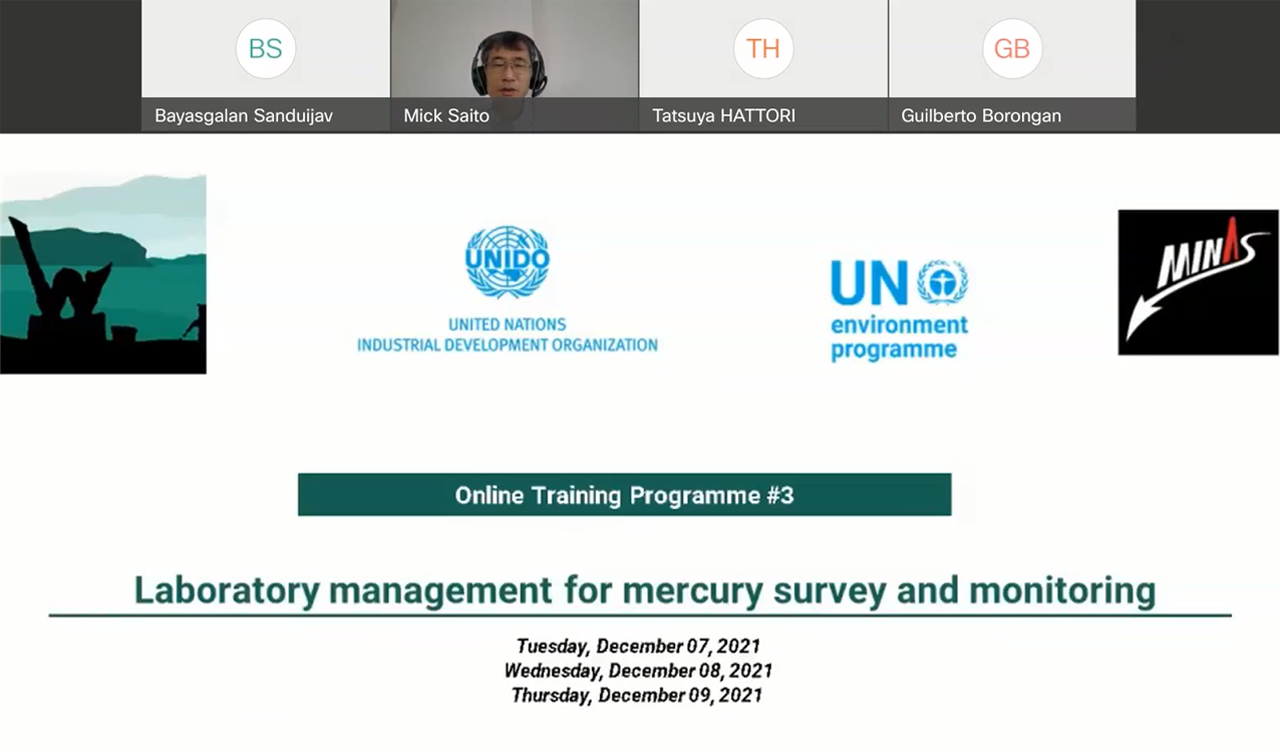Training Programme #3 of Laboratory Management for Mercury Survey and Monitoring
7-9 December 2021
Virtual Meeting

The Waste and Resource Management Cluster of AIT RRC.AP, together with the United Nations Office for Asia and the Pacific, Bangkok (UNEP ROAP), UNIDO, IDEA Consultants Inc, Japan and conducted a 3-day virtual online training on Laboratory management for mercury survey and monitoring. The training is a part of the slated activities under the ongoing project “Promoting Minamata Convention on Mercury by making the most of Japan’s knowledge and experiences” by UNEP. The project aims to support participating countries to improve their national mercury-related information base towards implementing mercury management, especially in the areas of information exchange, awareness and education, research development and monitoring. The virtual training programme was held to provide enabling support to laboratories, as well as strengthen their readiness to participate in the forthcoming laboratory proficiency testing of the project.
The virtual training event was opened with remarks from officials from UNEP ROAP, the Department of Environment, United Nations Industrial Development Organization (UNIDO) the Ministry of Environment Japan. Short notes and presentations were also given by experts from the Asia Pacific Mercury Monitoring Network (APMMN), the South Africa Mercury Monitoring Network (SAMNet) and the Nippon Instruments Corporation (NIC) and the IDEA Consultants Inc, Japan. The virtual training programme was well attended by over 140 participants from more than 36 countries comprising professionals/scientists from public laboratories and laboratories in universities that undertake mercury analysis (or will undertake in the near future) for monitoring, survey, or research purposes. Comprising of 3 sessions over 3 days, training was provided on laboratory management essentials related to mercury survey and monitoring. Training session one focused on lecture on key elements of atmospheric sampling and analysis, while in training session 2 and 3 lectures were given on multimedia sampling analysis and advancement to qualified laboratory, respectively. Participants expressed their deepest satisfaction about the training and the desire for a continued engagement capacity building and training on mercury monitoring, survey, and analysis.
